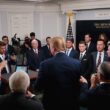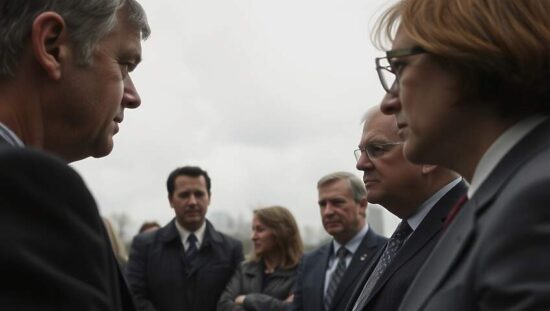President Frank-Walter Steinmeier’s recent remarks have reignited a contentious debate within Germany concerning the potential prohibition of the Alternative for Germany (AfD) party. During a commemoration event marking the anniversary of November 9th at his official residence in Berlin, Steinmeier alluded to the possibility of a party ban as a “Ultima Ratio” – a last resort for safeguarding democracy. While he refrained from explicitly naming the AfD, the implication was clear, sparking immediate reactions from within the political landscape.
The remarks have emboldened voices within the Christian Democratic Union (CDU), traditionally hesitant to openly advocate for such measures. Roderich Kiesewetter, a CDU member of the Bundestag, told “Handelsblatt” that the time for caution has passed. He argued that a review process, based on assessments from the Federal Office for the Protection of the Constitution and the party’s apparent aims to undermine the fundamental democratic order, is now warranted. Kiesewetter criticized the prevalent avoidance of direct discussion regarding a ban, lamenting the use of what he termed a “misleading framework”. He emphasized that the escalating accusations of treason further bolster the need for a thorough examination.
According to the German Basic Law, the Federal Constitutional Court possesses the authority to scrutinize a party’s aims and actions to ascertain whether they strive to dismantle the constitutionally mandated order. Kiesewetter asserted that accumulating evidence suggests precisely this is occurring within the AfD, observations corroborated by the findings of the Federal Office for the Protection of the Constitution.
The Social Democratic Party (SPD) is also intensifying calls for decisive action. Thuringia’s Interior Minister, Georg Maier, stated in an interview that he hopes fellow members of the CDU will finally acknowledge the AfD as a “volkisch-nationalist movement” deliberately seeking to destabilize German democracy from within. Maier maintains that mere ideological confrontation is no longer sufficient to protect democratic values. He referenced Article 21 of the Basic Law, arguing that it establishes a direct obligation, not merely a discretionary option, regarding the protection of democracy, framing it as an imperative rather than a permissive guideline. The prospect of a formal ban continues to be a source of intense political pressure and reflects growing anxieties concerning the future of Germany’s democratic foundations.





